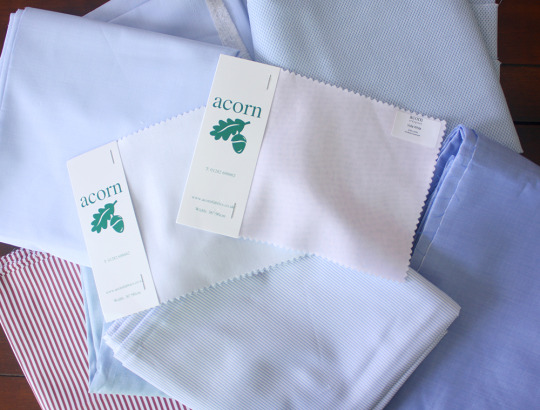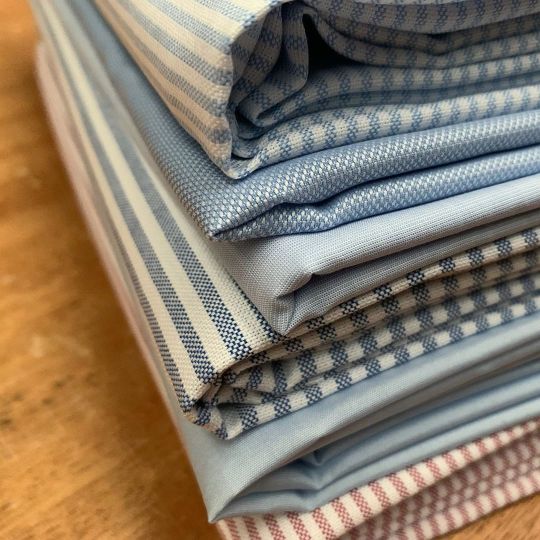
It’s no secret that the key to wearing tailored clothes in the summer is to get something with an open weave. Style writers mention the same line every July: get a jacket that’s softly tailored and unlined, made from a tropical wool or porous linen. That way, you can feel every passing summer breeze.
The same idea applies to shirts. Everyone knows you can wear a lightweight cotton or linen shirt on a hot day, but few people think about the weave.
At the most basic level, plain weaves are often more breathable than twills, although not all plain weaves are built alike. Some can be tight; others a bit loose. I recently picked up a few things from Acorn in the UK (a recommendable fabric supplier for those who get custom shirts made. Their cloths are a good value, even if they’re not particularly luxurious). A run down of some of their summer options:
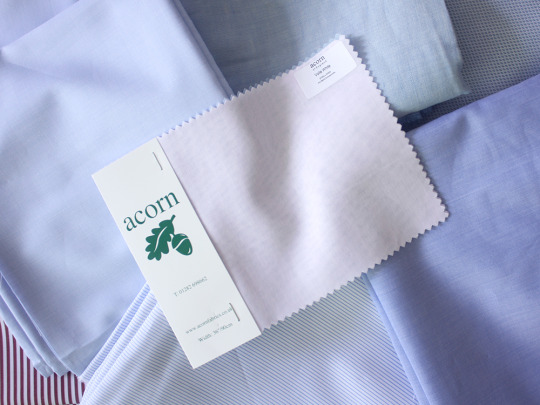
Back when he was still writing, Will at A Suitable Wardrobe liked to talk about Voile, a high-twist 2/100 shirting that’s feather weight, square sett, and made in an exceptionally porous weave. The fabric is so light and gauzy, it’s like wearing nothing at all.
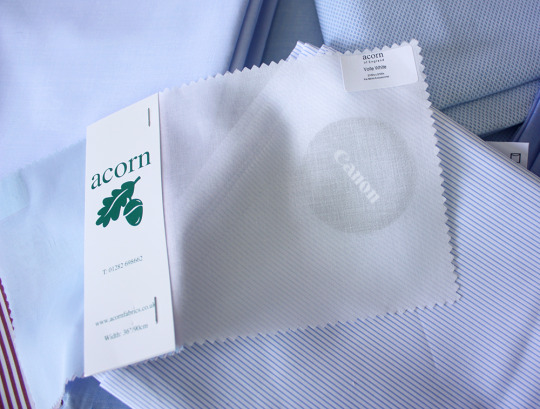
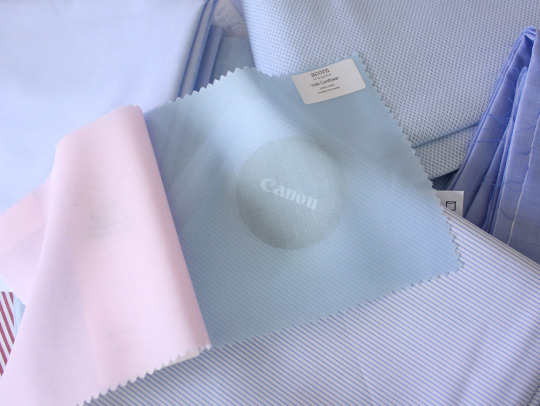
The problem with Voile – and any open weave shirting – is that it’s transparent. Too transparent, I think, for most men. In the two photos above, you can see how easily my lens cap shows through, even in darker colors such as light blue. With fabric this sheer, I imagine most men would need to wear an undershirt, which would defeat the point of having an open-weave dress shirt in the first place.
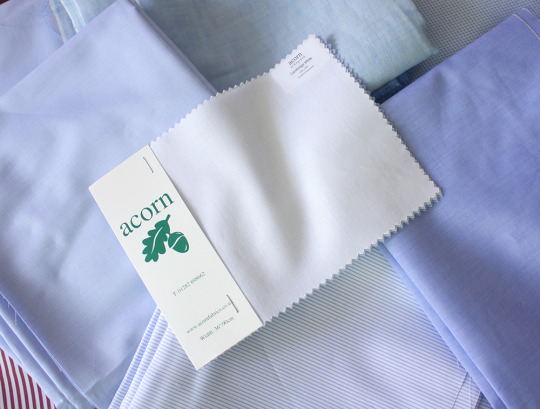
A little better is Cambridge, a panama weave (much like oxford) that uses a three-ply, 70s yarn. The three-ply lends strength and stability, despite the weave being loose and open. The yarns are also a little coarser than Voile, which gives the cloth some texture. A friend of mine calls this the “Fresco of shirtings,” which isn’t a bad description (even if the fabric is obviously not as scratchy).
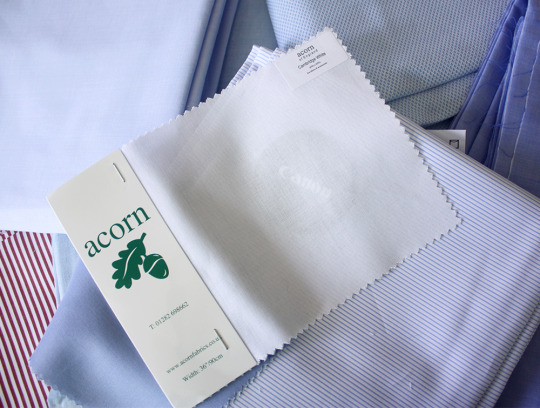
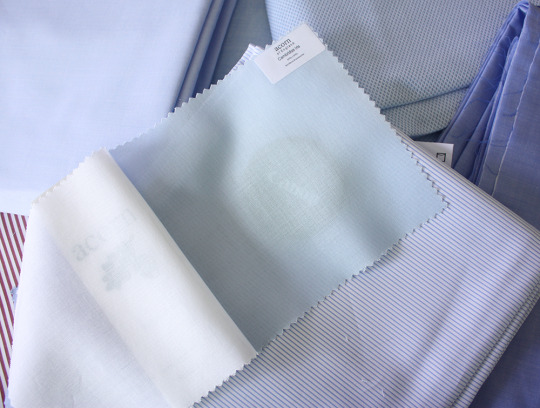
As you can see, Cambridge is a little less transparent (as well as a little heavier, although it’s still very lightweight). This would be good for readers in hot climes who need something as porous as possible, but still reasonably wearable. With a coat and tie, this would look like any other shirting. May God save you from eternal embarrassment, however, should you ever take off your jacket.
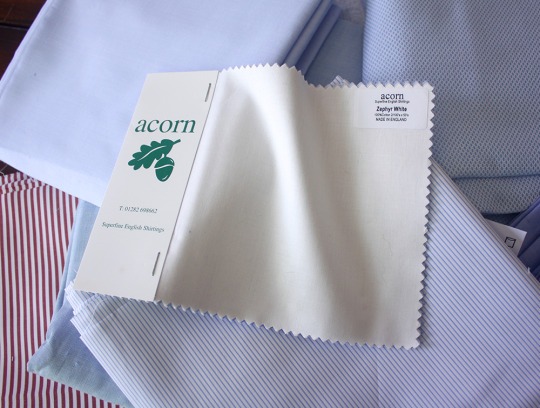
My favorite of the three is Zephyr, which is Acorn’s Batiste (a lightweight, fine cloth used for clothes and handkerchiefs). Again, it’s a soft, thin, open weave cotton, but one that’s less sheer than the options mentioned above.
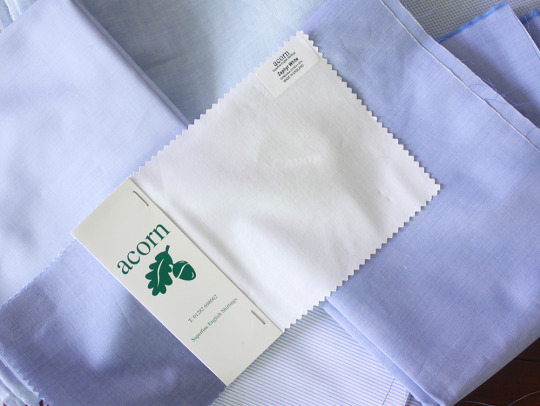
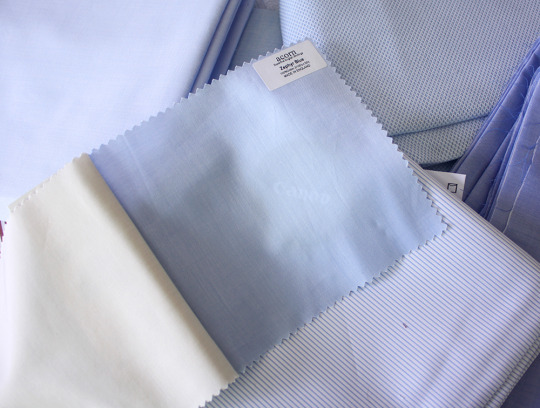
See here, where my lens cap can barely be seen behind the white and light blue fabrics. These would be ideal, I think, for someone who wants a breathable shirting with as little transparency as possible. As usual, if you want something less sheer, go for a colored option (rather than white).
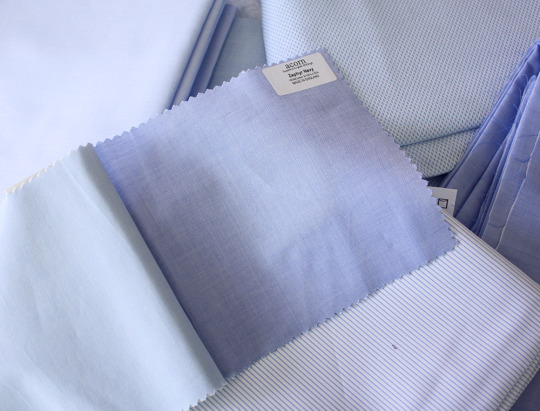
The nice thing about Zephyr is that it’s yarn-dyed, rather than piece-dyed (which is how Voile and Cambridge are made). That means the yarns are colored before being woven, rather than after. This allows the maker to create a chambray-like effect by mixing colored and non-colored yarns together.
The look is particularly good in Zephyr’s mid-blue, which is unfortunately sold out at the moment (I picked up the last length with this order – sorry). It’s a little more casual than sky blue, but perfect with linen suits. It’s also the least transparent of all Zephyr colors. In the photo above, you can barely make out the lens cap behind the swatch.
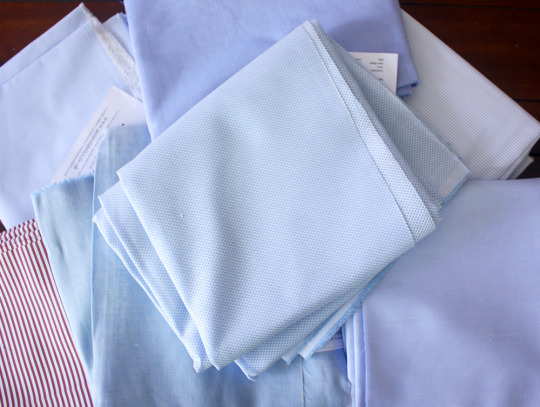
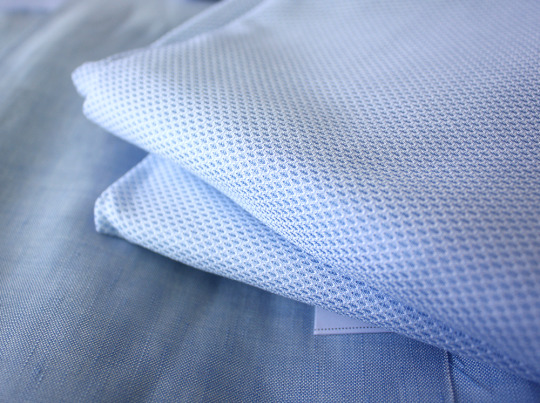
This one I picked up after seeing a StyleForum member’s post. Leno is an open weave, mesh-like shirting – sort of like a woven version of a pique cotton. It’s less stretchy, but the texture is similar.
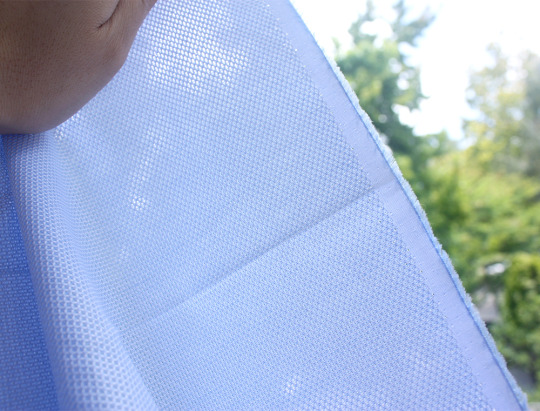
I’m not sure what to think of it, to be honest. For something this textured, I imagine I would rather wear a casual, pique cotton polo, but I’ll be sending it to my shirtmaker nonetheless. You never know until you try these things, after all.
In the photo above, you can see the openness of the weave. It’s less sheer than Zephyr, but much more porous than your typical oxford. Possibly a good option for hot, summer days, but too casual for ties. My hunch: this might look better in a very casual design, such as what you see on Dean Martin at the top of this post, rather than the French placket, no-pocket style I typically get on my dress shirts.
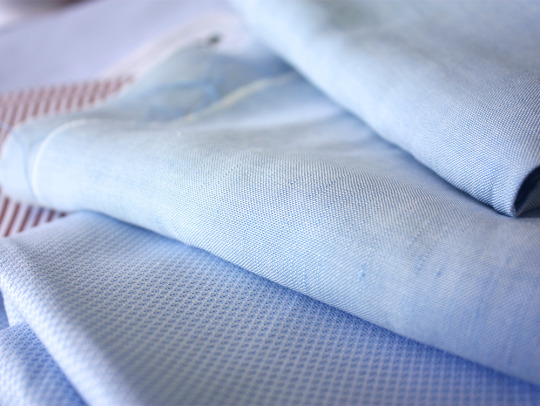
Finally, there’s Barbados, Acorn’s linen and bamboo blend. Along with being more wrinkle resistant, linen blends are often a little more affordable than pure linens. Barbados runs a very reasonable £13/ meter – considerably less than the £30/ meter they charge for their pure linens (which, to be honest, I don’t think are that great).
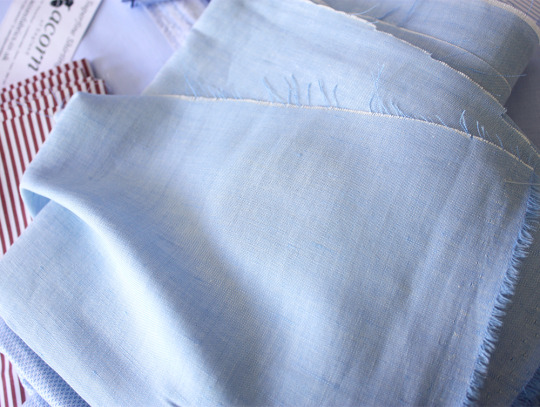
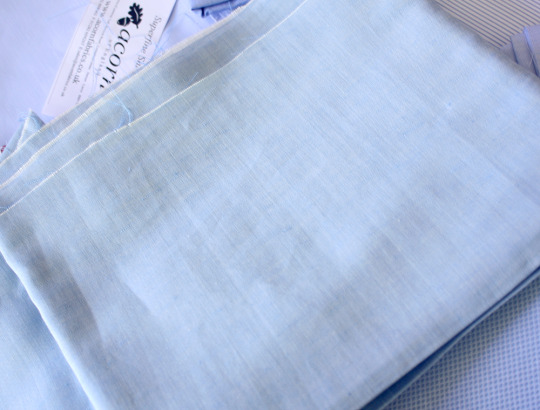
Again, not terribly sheer, as the lens cap in the first photo is barely visible. The fabric also doesn’t wrinkle that easily (thanks to the bamboo). In the second image, you can see how the shirting looks after a quick squeeze. Perhaps best of all, Barbados looks a little like chambray (much like Zephyr), which gives the fabric more visual depth than Acorn’s piece-dyed linens.
Unfortunately, these shirts won’t be done in time for this summer, but I’ll have them early for next year. If you’re interested in picking something up from Acorn, keep an eye out for their promotions. They occasionally offer 25%-off discount codes, especially around Christmas and New Year’s.
